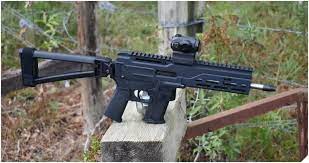
The NFA in the Context of Modern Gun Control Debates
The National Firearms Act (NFA) of 1934, enacted during a time of major social turmoil and increasing crime rates, has become the cornerstone of federal firearm regulations in the United States. Its primary focus is on managing and regulating firearms which were thought to be especially hazardous or susceptible to misuse, such as machine guns, short-barreled rifles and shotguns, suppressors, and destructive devices. This law was inspired by the necessity of addressing the growing violence that was associated with organized criminality during the Prohibition time period, and also to control the proliferation of high-risk firearms.
One of the most important elements of one of the most important aspects in NFA is the registration requirement. All licensed firearms and other devices have to be registered with the Bureau of Alcohol, Tobacco, Firearms, and Explosives (ATF). The registration process requires detailed information about the firearm, its owner, as well as the purpose of its use. In addition, the NFA mandates a special tax on these items and it varies according to the type of weapon. For instance, the tax is $5 for silencers, and 200 for machines guns or destructive devices. The tax not only serves as a financial obstacle, but also as a regulatory method to ensure that control of the ownership, transfer and use of these devices is closely monitored.
It is also important to note that the NFA also requires thorough background checks for anyone who wants to acquire or transfer regulated items. This is to prevent individuals who have criminal histories or other reasons that prevent them from purchasing dangerous weapons. Background checks involve an extensive examination of the applicant’s criminal background and mental health condition as well as other pertinent factors. The goal is to ensure that only law-abiding, responsible citizens are allowed to possess these items.
Despite its intent, the NFA has been a subject of controversy and debate. Some critics argue that the act puts unreasonable restrictions on legitimate firearm owners and hinders those seeking to use certain firearms to fulfill legitimate needs for hunting, or shooting for sport. They contend that the act is disproportionately affecting those who live in peace, rather than addressing the underlying causes of gun violence. Proponents, however, argue that the NFA is vital to ensuring public safety and preventing the misuse of high-risk firearms. They believe that the regulations and restrictions imposed by the NFA are necessary to combat organized crime and protect communities.
In the end all, the national firearms act remains a crucial piece of legislation in the area of firearm regulations. It sets out an extensive framework to control and monitor certain types of firearms and other firearms, with the goal to maintain a balance between public safety and individual rights. Knowing the provisions of the NFA and the historical context of its implementation is crucial for all those involved in firearm ownership, regulation, or advocacy.


